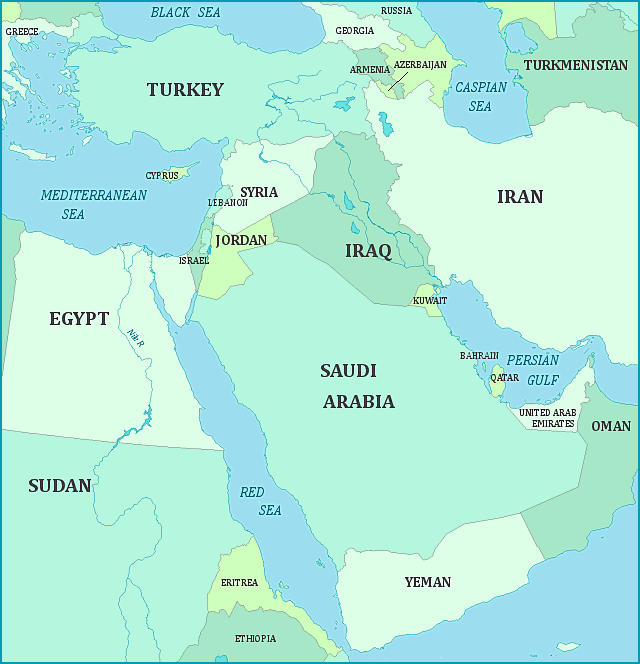
While two weeks ago Western intervention in Syria seemed imminent, today it merely stands as the second track after the diplomatic option that the US, Russia and Syria have embraced. This situation has led many, including me, to draw parallels that somehow justify or refute the usefulness of an attack on the Syrian regime, the most likely comparisons being drawn with Iraq, Libya and Kosovo. But there are major differences that make such comparisons unfeasible and even dangerous.
Syria Is Not Iraq
- In this case, if the use of weapons of mass destruction has been proved (both by the UN and by independent organizations such as Human Rights Watch).
- Iraq was not plunged into a civil war, unlike Syria is today.
- Iraq was a dictatorship, although a “stable dictatorship” that in principle posed no risk to other countries in the region.
- In Iraq, the sectarian civil war erupted following (some believe that even was a result of) the Western intervention, not vice versa .
- The West, and the United States in particular, had already had to deal with Saddam Hussein and, after the Gulf War, they allowed him to remain at the head of the country. What’s paradoxical is that before 2003 the ultimate goal was not his ouster, whereas in Syria Assad’s deposition quickly became a precondition for any negotiations for both the Syrian opposition and the “Friends of Syria” Group.
- No other Arab country backed the invasion. In fact, several Western countries clearly positioned themselves against it.
Syria Is Not Libya
- The most blatant difference lies in the configuration of the territory of both countries: While the Libyan population is mainly to be found along the Mediterranean coast, Syria is a country with a very narrow coastline whose population is homogeneously distributed t
hroughout the former French colony. - In Libya (even though a controversial arm wrestling with Muammar Qaddafi was needed), there was no evidence of the existence of weapons of mass destruction.
- Arab countries, spearheaded by Qatar, led the call for intervention. Today, despite defining their position as emerging key players in the Syrian conflict, most of the time they tend to act behind the main scene and wait for the United States and Russia to announced their stances.
- The Libyan opposition, at least at first glance, transmitted a reassuring image of unity that seemed to foresee a stable and peaceful transition.
- The sectarian composition of both countries, especially in respect to minorities, is not comparable in the least.
- Qaddafi (neither Saddam) had no allies as powerful as Syria’s partners are today: Iran, Hezbollah, Iraq itself and even Russia.
- Libya did not share a border with key allies of the United States such as Israel and Jordan.
Syria Is Not Kosovo
- The war between Serbia and Kosovo was a civil war, but the casus belli was a territorial dispute: Kosovo wanted to become a new state. The Syrian rebels want to free the whole of Syria from Assad. Maybe if a war broke out involving the Kurds, the comparison would be more meaningful.
- The risks of intervention seemed much more limited, both in terms of the interference of foreign powers and in terms of regional spillover.
- The West had one clear objective: to separate Kosovo from Serbia. The opposition in Kosovo also showed a united stance and shared just one goal.
- The motivation on both sides was nationalism, not religion. Religion was indeed used, but as a differentiating feature of a certain identity to justify secession.
- Although Milosevic was not a beloved leader, the war was not waged with the aim of toppling him. Democracy itself (other than the right to decide the configuration of the state) was not at stake.
- The use of weapons of mass destruction was not challenged.
- Kosovo does not lie in an oil-rich region.
- Syria is a more important ally for Russia than Serbia was at the time.
- Serbia and Kosovo are part of the “wider Europe”, a territory the West intends to keep as an island of peace since the 90’s (hence the 2008 intervention in Georgia).
Sir Mark Twain might explain it best:
“We should be careful to get out of an experience only the wisdom that is in it and stop there, lest we be like the cat that sits down on a hot stove lid. She will never sit down on a hot stove lid again and that is well but also she will never sit down on a cold one anymore.”


